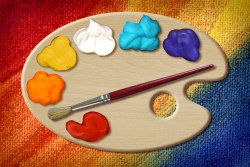Hobbies: Helping or Hindering?
We’ve talked before about the importance of having a hobby. Of course this is not just important for migraine or cluster patients, but for anyone with chronic illness – well, for anyone at all.
 |
But the fact is, it can be harder for someone with headache or migraine to do. Maybe because of the symptoms. Maybe because of the fear of when symptoms will strike. But perhaps one of the biggest reasons is because someone with a condition like migraine thinks they’re already not "contributing" enough. They’re not able to do "enough" when it comes to "normal" family and community activities.
Of course, the best kinds of hobbies are a contribution to the community. But that aside, it also seems that we’re more able to contribute in our jobs or in our family when we have a hobby.
Some of these thoughts were echoed in a recent article published at AHDA HeadNotes. Take some time to read A Third Space for Migraine Patients.
Are you having trouble seeing how this could really fit in your life? Not sure why it’s important (and it can be more than just important – it can be revolutionary)?
I suggest you take a look at a book called The Element: How Finding Your Passion Changes Everything by Ken Robinson Ph.D. Although I don’t agree with the author’s approach on everything, he does demonstrate with real, practical examples how and why we’ve been doing a poor job helping people – and ourselves – really find our passions in life.
Here’s the book description:
The Element is the point at which natural talent meets personal passion. When people arrive at the Element, they feel most themselves and most inspired and achieve at their highest levels. With a wry sense of humor, Ken Robinson looks at the conditions that enable us to find ourselves in the Element and those that stifle that possibility. Drawing on the stories of a wide range of people, including Paul McCartney, Matt Groening, Richard Branson, Arianna Huffington, and Bart Conner, he shows that age and occupation are no barrier and that this is the essential strategy for transforming education, business, and communities in the twenty-first century.
Take the time to develop a hobby, and to delve into what you can be passionate about. It has far more value that you may realize at first.

16 November 2011 @ 11:21 am
It is important to do things that you really enjoy. But having a hobby just to have a hobby is difficult unless its something that you really enjoy and its flexible enough that you can miss it every once in a while without causing problems. I volunteer every Sunday at the Humane Society, taking pictures of cats and writing their profiles for their website. Sometimes I just can’t make it because I am physically unable, but the people are happy to have me no matter what. And when I can get myself to go, my pain level goes down a lot when I am interacting with the cats. But if I didn’t get that part out of the deal (all the happy and the fuzzy and the cuteness and the feeling better), I probably wouldn’t do it because it would most likely make me worse.
17 November 2011 @ 10:48 am
Both the post and Kayla make good points! For me, I agree, that the key is having hobbies/commitments that can be cancelled, if needed. As Kayla said, there are some days she is physically unable to go to volunteer, and likewise, there are a lot of us who have this same problem. For me, however, it is frustrating when I have a hobby/commitment that I plan to do as a form of stress relief, but when I am physically unable to do it I get frustrated if I feel like I am letting someone else down due to my physical inability. So, for me, I try to make sure that the things I do as a hobby are things that I can cancel in the event that I don’t feel well or are physically unable to participate so that I don’t feel frustrated for letting others down. Things like golf, for example, are individual sports that I can play with others, but I am not letting someone else down by not showing up because it is not a team activity.